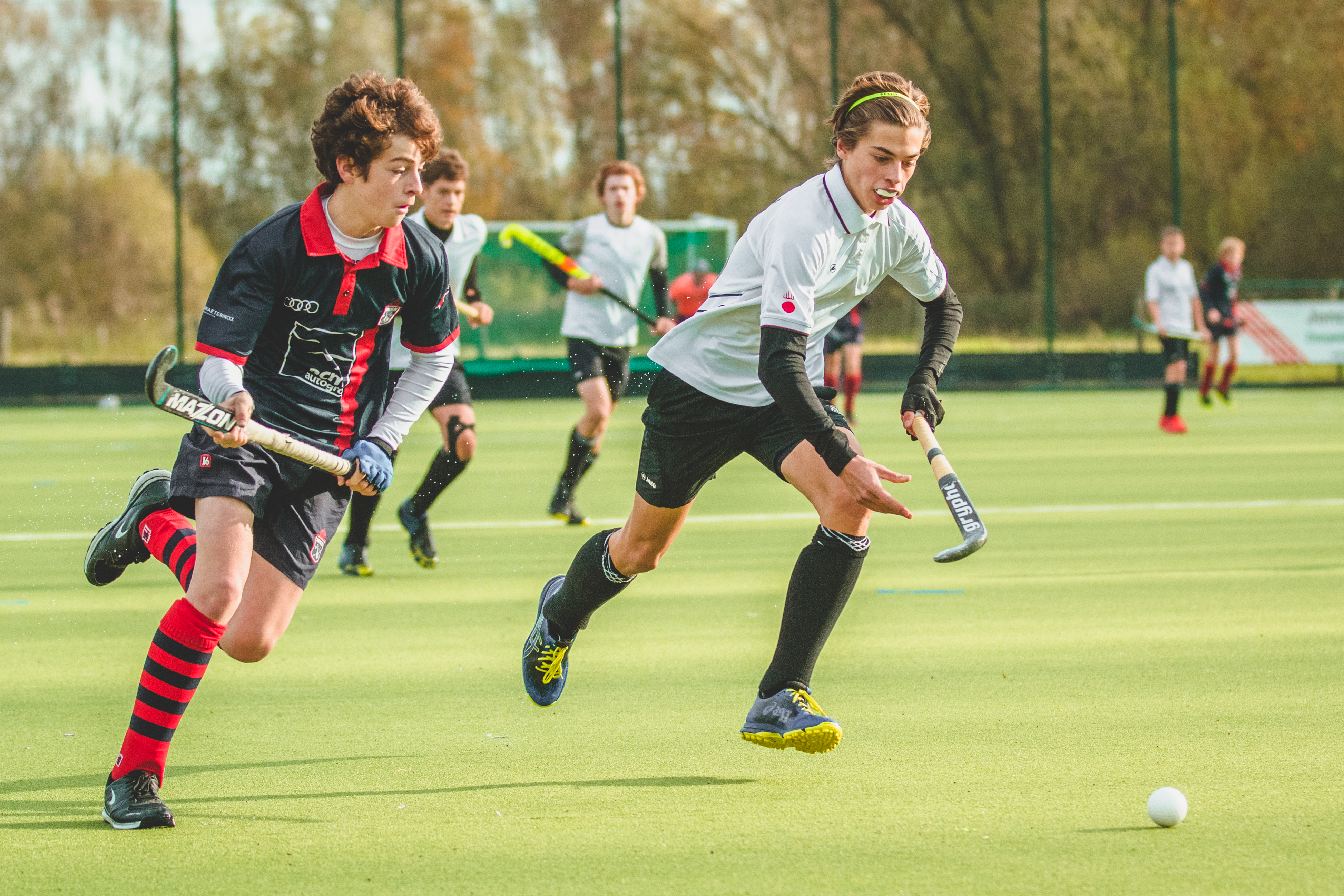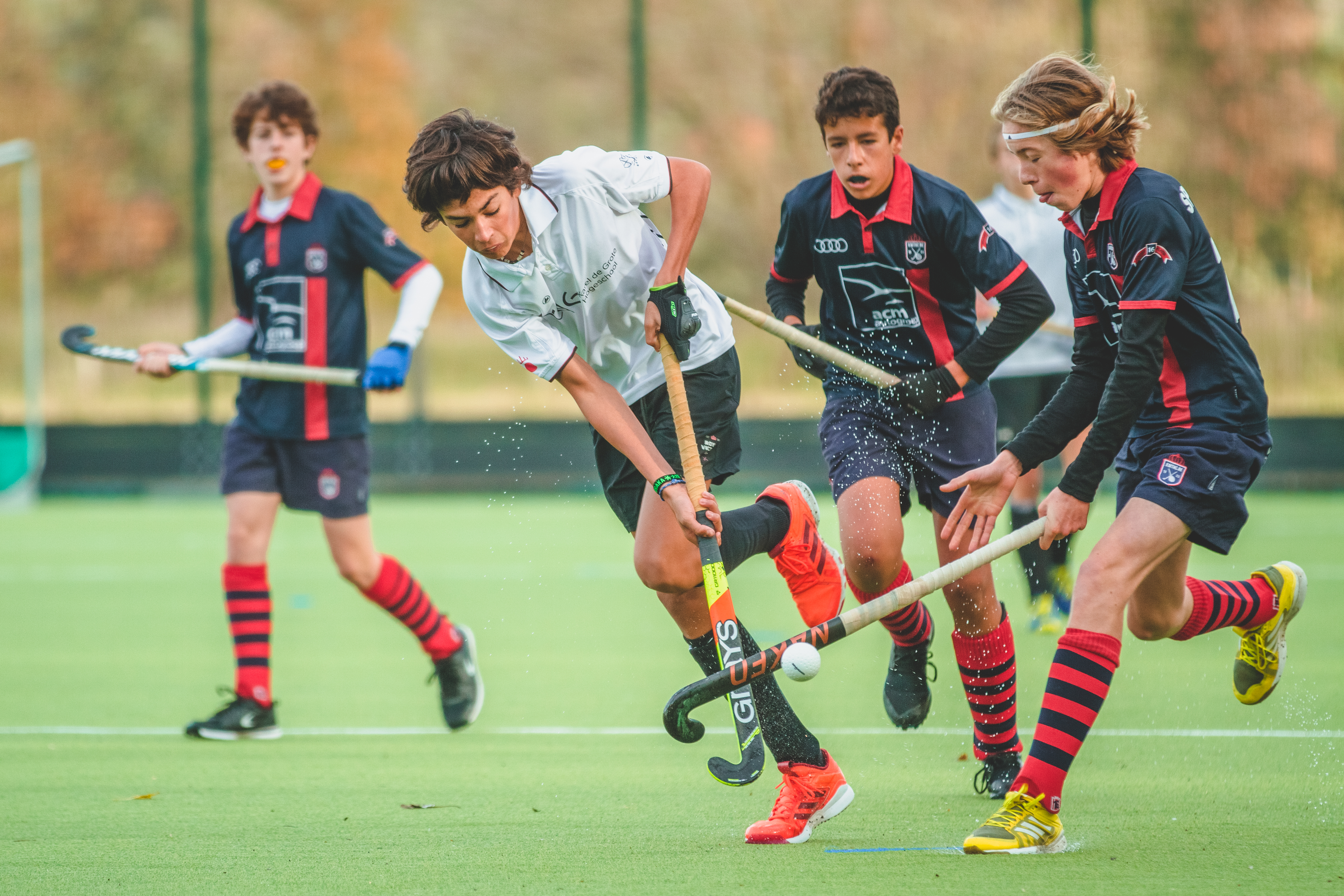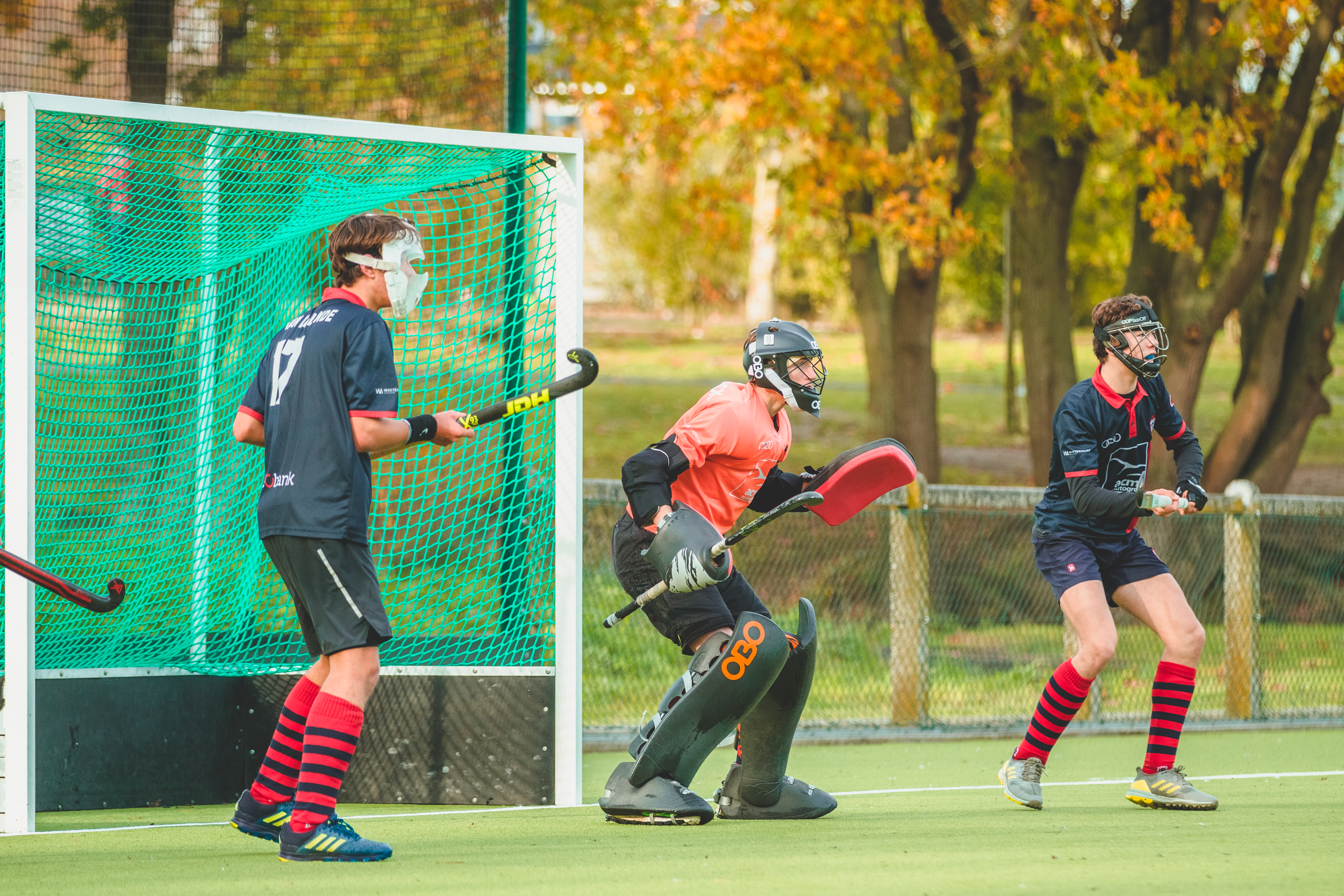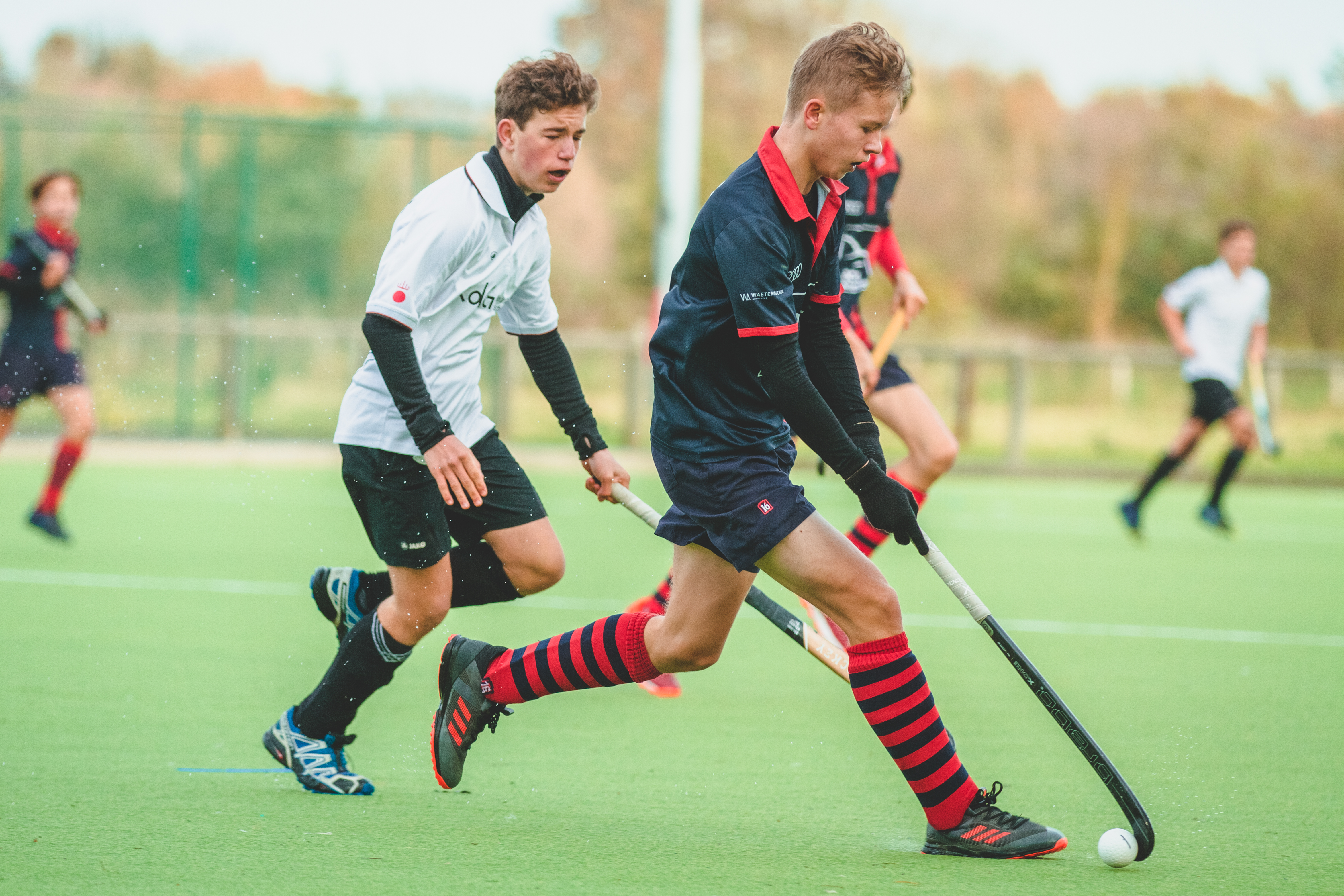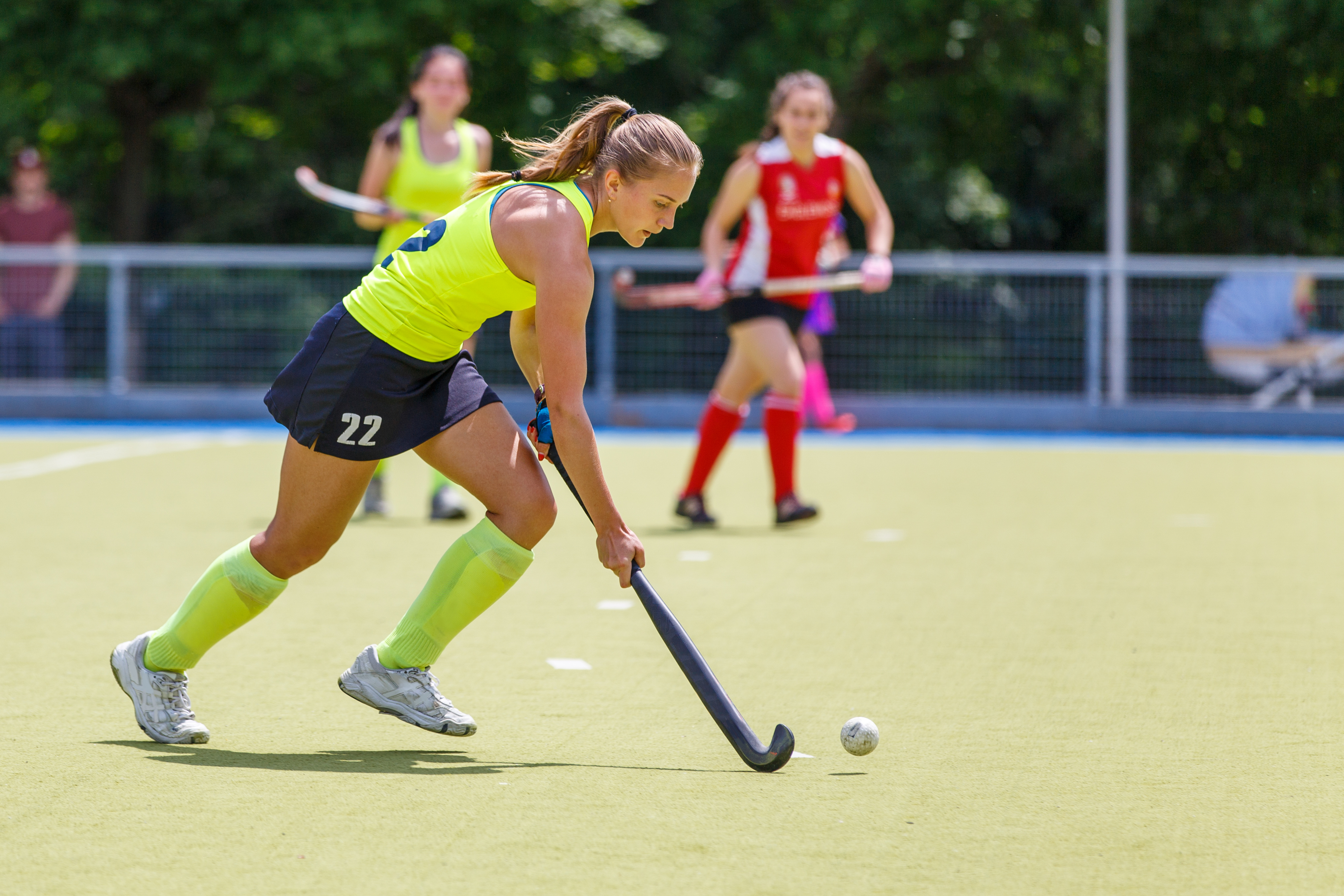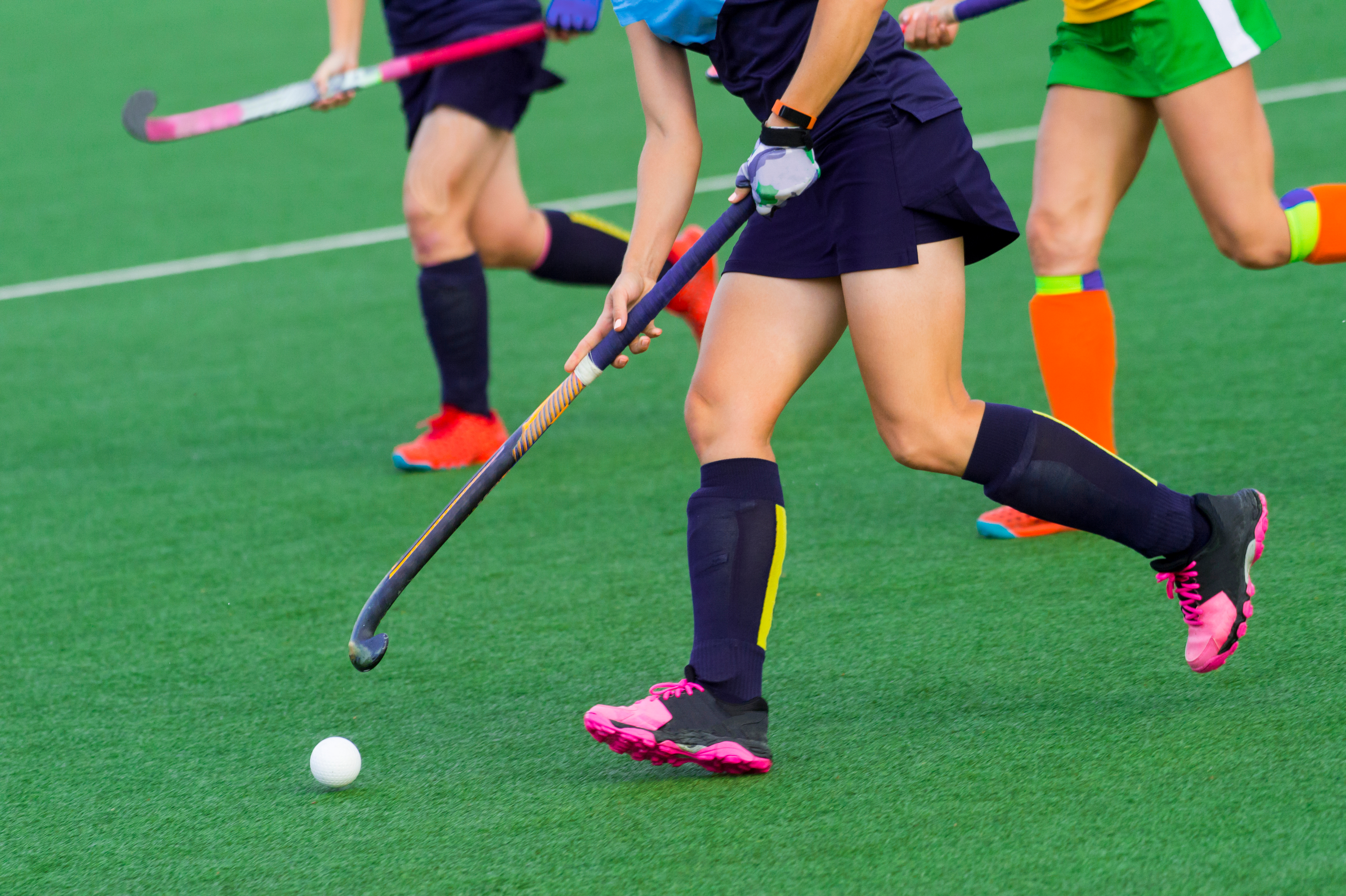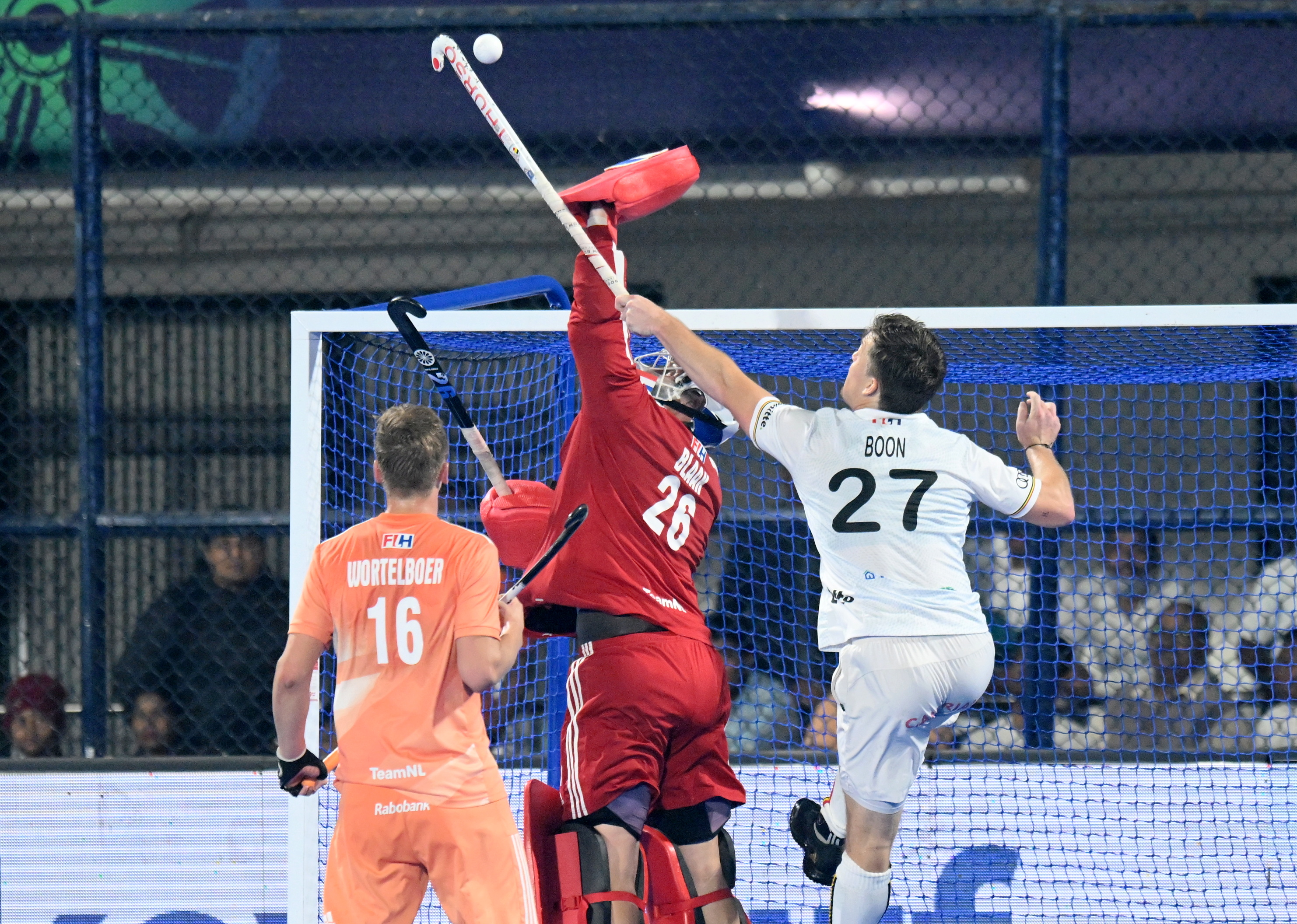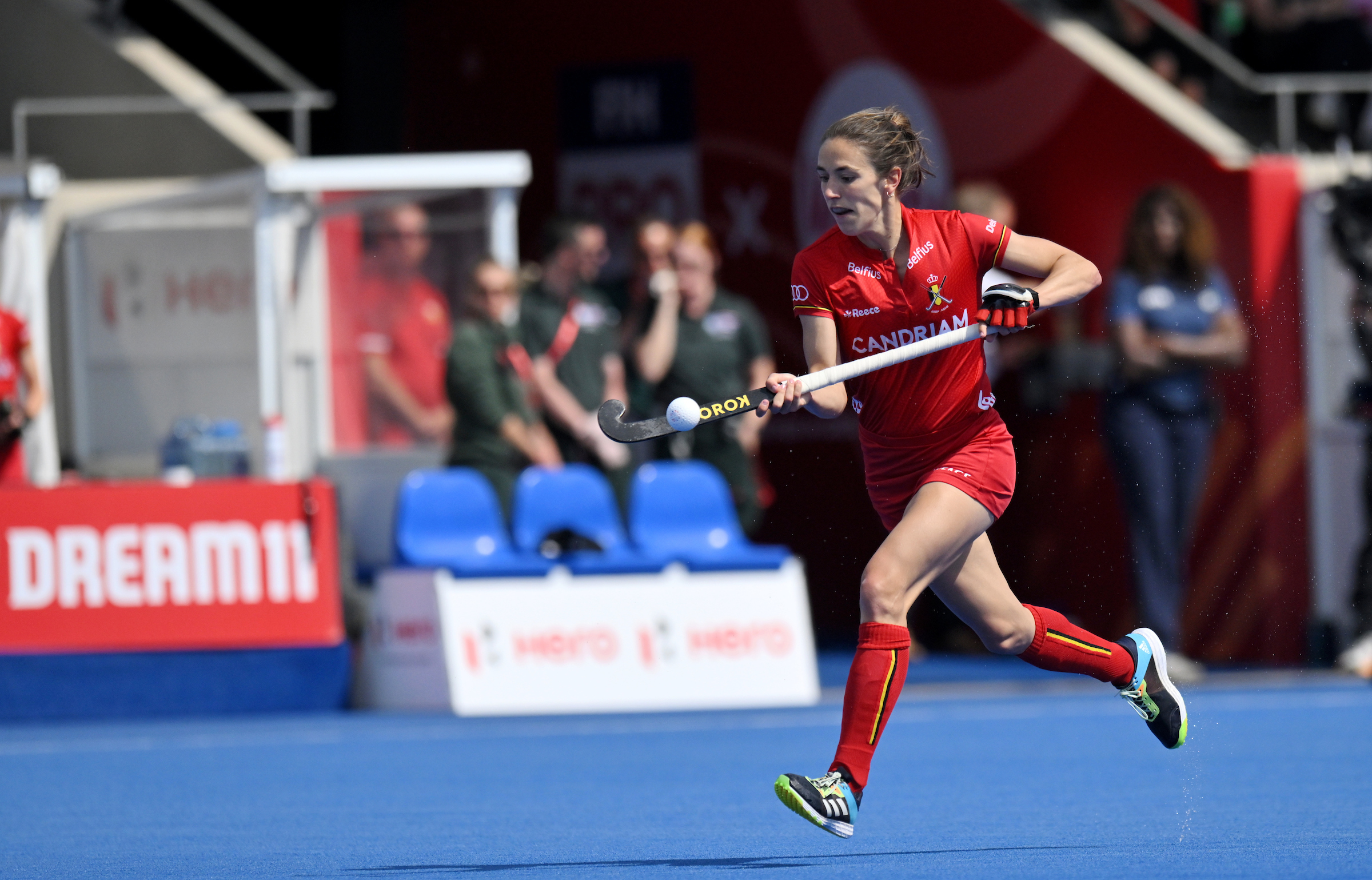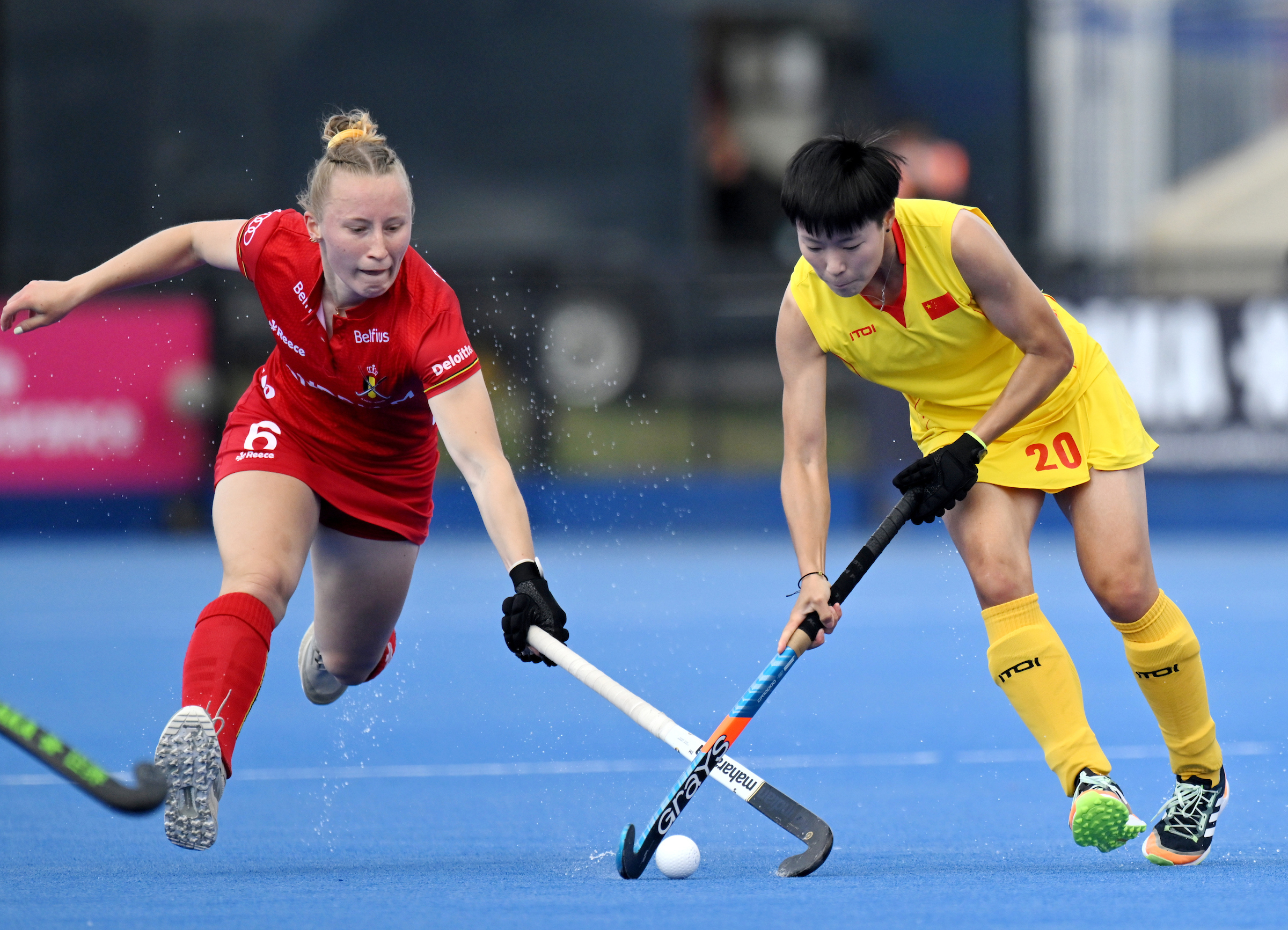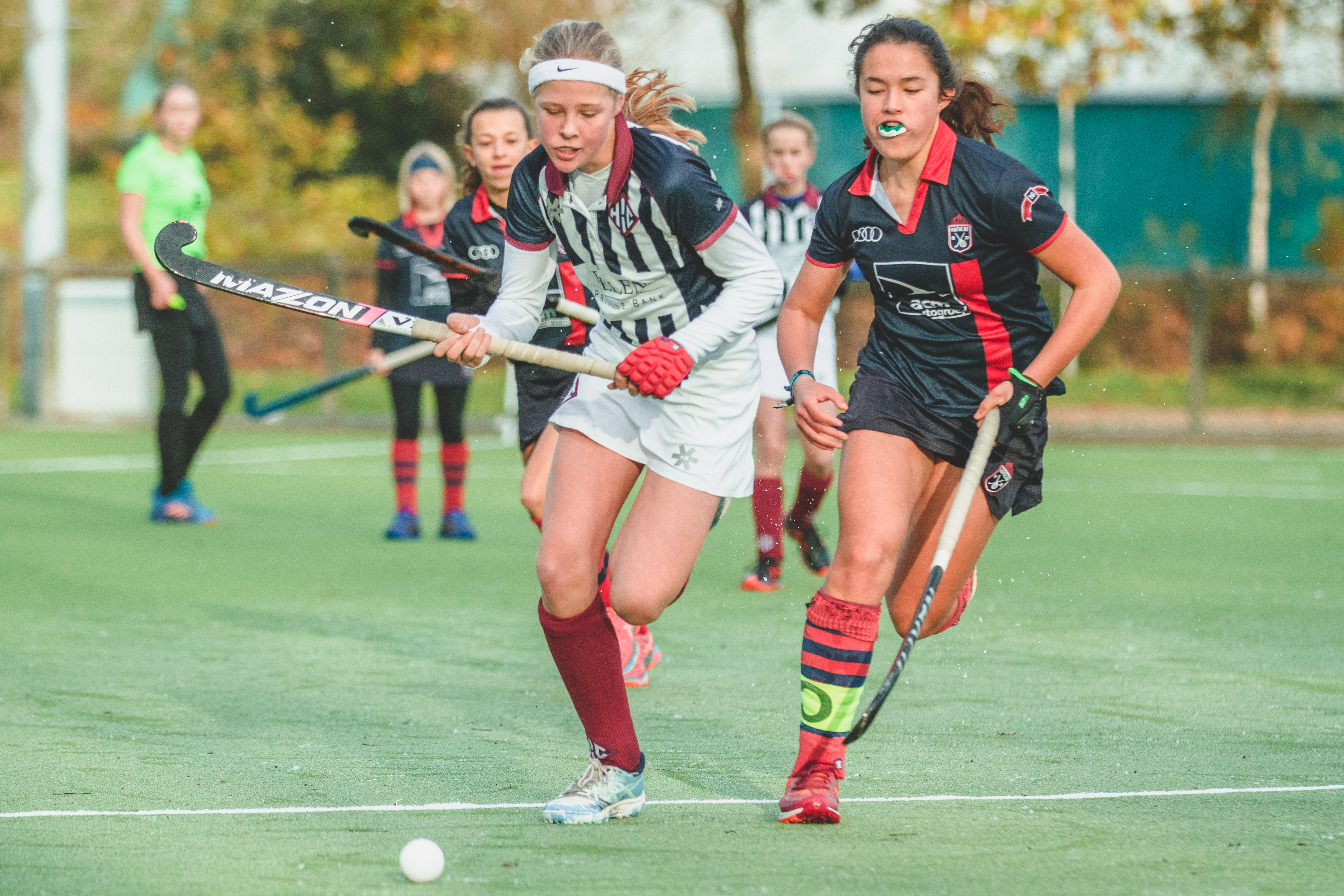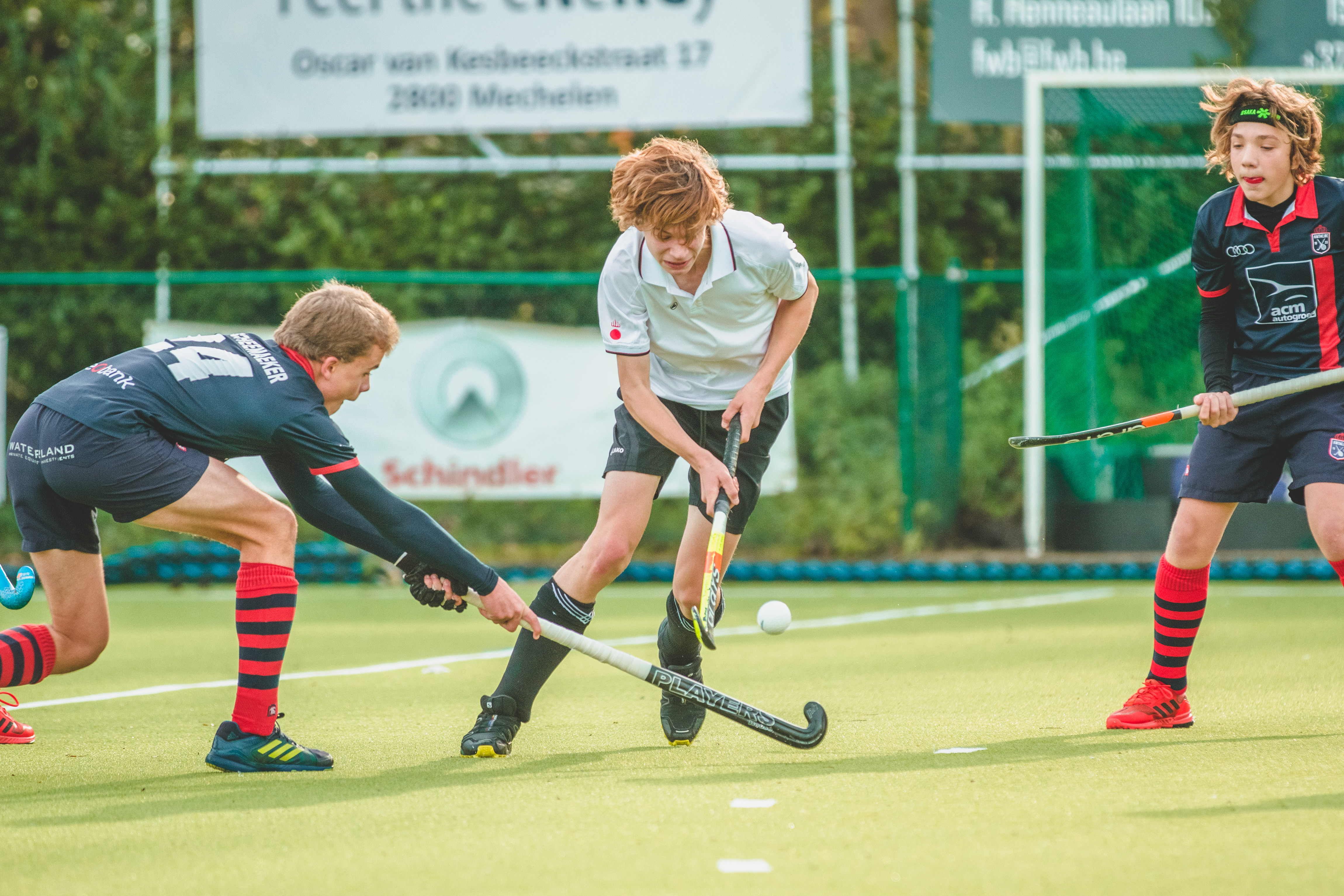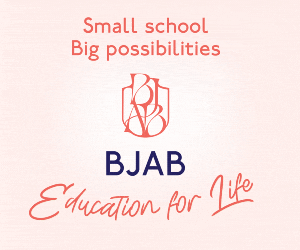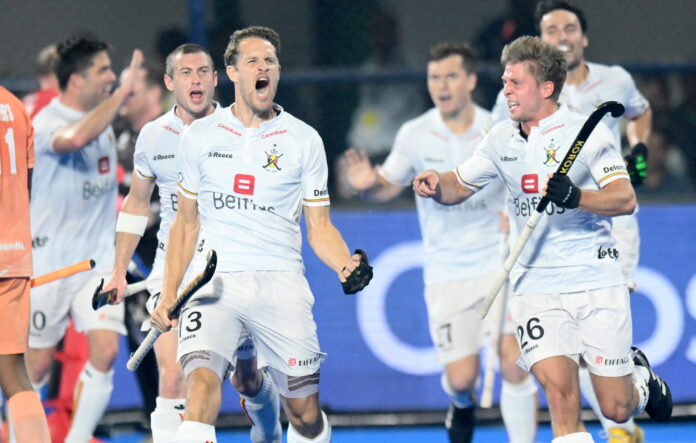
Julian Hale makes the case for hockey, whether you are young or old!
The sport of grass hockey, also known as field hockey, has been flourishing in Belgium, in particular in the last ten years or so. At the national level, Belgium currently has what you might call its ‘golden generation’ of players, with the team winning the World Cup in 2018, an Olympic Gold in 2020 and only narrowly losing – in a dramatic penalty shoot-out – to Germany in the 2023 World Cup.
“Belgium currently has what you might call its ‘golden generation’”
Belgium has a dynamic and flourishing grass hockey scene, as is clear from the strong growth in hockey club members in the last 15 years and from the fact that as many as 20 new clubs have been set up in the last five years. At the national level, Belgium currently has what you might call its ‘golden generation’ of players, with the team winning the World Cup in 2018, an Olympic Gold in 2020 and only narrowly losing (in one of those dramatic penalty shoot-outs) to Germany in the 2023 World Cup.
I write ‘grass hockey’ as, when I tell people I play hockey, they tend to think of ‘ice hockey’. “Where’s the ice?” said one friend of mine when coming to watch a game a while ago!
My passion for hockey dates back to my school days in the UK in the 1980s, where we were fortunate enough to play lots of sport, including three main sports (rugby in the winter, hockey in the spring and cricket in the summer), all of which require strong hand-eye coordination and strategic thinking skills. The simple pleasures of catching, stopping and running after a ball have always been passions of mine. And whilst I’ve continued to play all these sports and others involving a ball off and on, hockey is the one that I’ve ended up playing most.
Why hockey?
Hockey has so much to offer. On a personal level, you can work on your individual skills (stopping, passing, tackling and feinting/dribbling/going past opponents). The pleasures of stopping a ball moving at high speed, intercepting a pass, making a good tackle, playing a well weighted pass and hitting the ball cleanly are considerable. And then there’s the team aspect: i.e. not being individualistic, knowing when to pass and playing hard for your team as well as learning how to deal with different characters in your team.
Highlights for me included playing with and learning from some very gifted players (several England internationals) in a cup run that ended in my university, Bristol University, winning the English universities’ cup as well as captaining a 7-a-side team to a local tournament win in Belgium this year.
“Another big plus about hockey is that you can start at a very young age and play up until a very old age”
Another big plus about hockey is that you can start at a very young age and play up until a very old age. My kids started playing when they were six years old and have had some wonderful coaching from committed coaches. Aged 54, I’m still playing and want to keep improving ,which is why, along with a club teammate, I’ve set up a Belgian national (‘Old Lions’) over 55s team. We’re training, building a strong team ethos and plan to play in international competitions. I also know of and play against people playing hockey into their 60s, 70s and beyond!
Another fun aspect of the ‘Old Lions’ team is the fact that it brings together French speakers, Flemish speakers and English speakers. So far, the on pitch language has been French but there is plenty of English and Flemish spoken too. On a personal level, it’s a great way to improve my knowledge of colloquial French, pick up the odd bit of Flemish and, as I’m also looking for tournaments/matches in Germany, to keep my German going.
Safety
One reaction I’ve had when saying I play grass hockey: “Isn’t that dangerous with all those sticks flying around?” Well, it’s true that it’s not 100% safe. I’ve had a few injuries (mainly to the face and hands) over the years but then again I’ve been playing the game for over 30 years.
When I started playing aged 11, virtually all the matches were played on grass. Pitches weren’t always even and so the ball would jump up unexpectedly. Nowadays, the pitches are made of artificial grass, which helps keep the ball on the ground. The danger is kept to a minimum by responsible players and by two umpires (who whistle loudly when the ball is lifted dangerously). And players protect themselves with a gum shield (this cushions the blow if you are hit with a ball or stick in the mouth) and gloves (to protect against hand injuries). Clubs also tend to provide masks for players for penalty corners (probably the most dangerous part of the game).
Some interesting facts about Belgian hockey
Since 2008, the number of active members has increased by 8% per year on average, coming to 53,000 today
The Belgian hockey community (including family and friends) brings together nearly 175,000 people
There are 107 hockey clubs in Belgium (49 in Brussels and Wallonia, 58 in Flanders) 20 new clubs have been set up in the last five years
Age range: Under 35 (35%), 35-44 (27%), 45-54 (28%), over 55 (10%)
Source: Opinion survey among members of the Association Royale Belge de Hockey
Choosing a club
If you’re thinking of taking up outdoor hockey or finding a club for your children, my recommendation is to ask friends/colleagues (or me) about the different clubs, club atmospheres and facilities, membership fees etc. There’s no shortage of clubs, which can be found in the Brussels region, in Flanders and in Wallonia. (details can be found on Hockey Belgium’s – www.hockey.be). Clubs have separate men’s and women’s teams whilst mixed hockey (men and women together) is relatively rare.
“There’s no shortage of clubs that can be found in the Brussels region”
Geographical proximity is one obvious factor in choosing a club. I currently play for Parc, which is based in Auderghem, just a 20-minute cycle (part of my pre-match warm-up!) from where I live in Etterbeek. For me, another factor is the quality of the pitch. The best pitches to play on are water-based artificial pitches (the ball moves more quickly than on sand-based ones and you are less likely to cut yourself if you fall over), of which there are many throughout Belgium. And another key factor is whether you or your child(ren) want to play highly competitive or more social hockey.
Whilst still a work in progress, there’s a growing trend towards distinguishing between highly competitive (with plenty of training and higher levels) and social/fun hockey (with very little or no training and lower levels). The generally more competitive eleven-a-side matches take place on Saturdays and Sundays. But there are also Gents and Ladies leagues – that focus more on fun than competition. These matches are played on Monday evenings and are often 7-a-side and played on half a pitch, so potentially, there’s a little less running needed!
In addition to outdoor hockey, there are also indoor hockey leagues in the winter.
In all cases, it’s fun to stay around for the convivial ‘3ème mi-temps’ [‘third half’, the equivalent of the 19th hole in golf or ‘beer-a-clock’]!
To find out more contact: JulianAHale@gmail.com
Or go to the Belgian Royal Hockey Association website: www.hockey.be


